Homo Mercator — entrepreneurship as the missing evolutionary driver
What if humanity’s real evolutionary leap wasn’t bigger brains or bigger tribes, but the moment we turned surplus into currency and trade, competition, and culture followed?
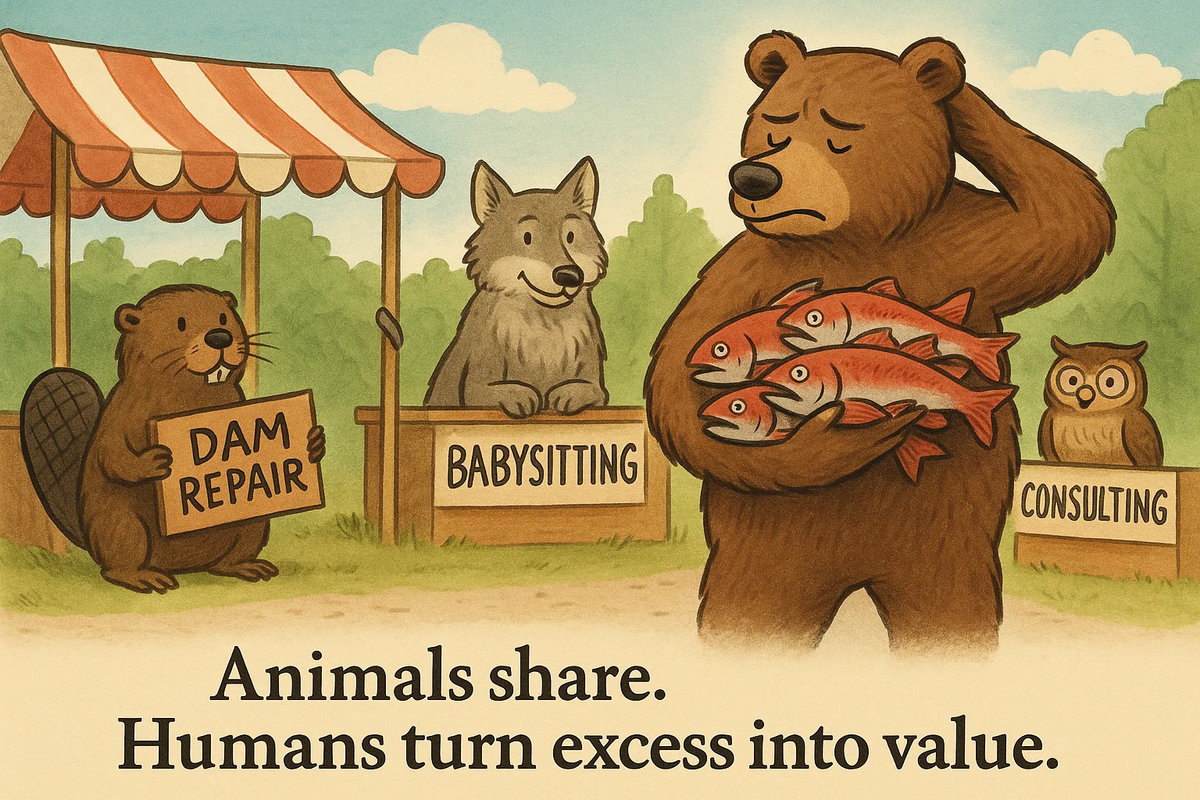
There are many hypotheses about why Homo sapiens at some point took a unique evolutionary path, breaking away not only from other primates but, more broadly, from all other living beings. Most explanations focus on two key factors: the dizzyingly fast growth of the human brain, unprecedented on the evolutionary scale, and the parallel expansion of social networks that bound together ever-larger groups of individuals. Humans are deeply collective creatures, and many anthropologists argue that it was precisely the density of these connections that enabled us to create culture, language, and technology.
But I believe there is another aspect in this story, one that is rarely emphasized, though it sets us apart just as radically from our closest relatives. That aspect is entrepreneurship. In the natural world, we don’t find examples of a creature turning surplus into capital. A bear that catches too many salmon doesn’t go and trade them for something useful in the future. A wolf doesn’t offer venison to neighbors in exchange for babysitting. Animals may share — sometimes generously, sometimes reluctantly, in the framework of hierarchy or instinct. But they don’t transform success into a resource for exchange. Humans do.
And it’s not difficult to imagine that first moment: someone who caught too much fish, instead of giving it away to neighbors (or letting it rot), decided to use the excess as a tool. Fish ceased to be just food and became currency, and the neighbor ceased to be just a neighbor, turning into a trading partner. From that moment, a new logic was born — the logic of entrepreneurship. Objects acquired not just intrinsic meaning but value in their convertibility into other goods, services, or symbols of prestige.
It is still impossible to say exactly when commodity exchange and monetary relations truly began. Archaeological finds leave space for speculation: shells that served as ornaments may have been signs of aesthetic taste — or evidence of trade. But at some point, exchange ceased to be occasional and became systematic. And that, in turn, accelerated the development of human culture. If I make a stone tool only for myself, I don’t need to decorate it with patterns. But if I want others to choose my tools over someone else’s, the pattern becomes a mark of quality, the first logo, a proto-brand. Where competition arises, style follows. Where markets emerge, culture emerges.
Entrepreneurship, at its core, is the ability to see more in an object than its immediate function. It is the skill of imagining secondary uses, of inventing value where none seems to exist, and convincing others to believe in it too. In that sense, it may have been as important a driver of civilization as language or collective memory. Because entrepreneurial intuition didn’t just make us hunt and share — it made us trade, take risks, and invent new rules of the game.
And perhaps, if Homo sapiens is truly unique, it’s not only because we think or communicate. It’s also because we can turn a fish into the future.
When it comes to the greatest achievements of humanity, optimists usually talk about the achievements of science and art, all-conquering curiosity, altruism and mercy. Pessimists talk about wars, bloodshed, extinct species and an existential threat to the planet. But what if the truth is somewhere in the middle? What if the main driver of our species is a simple HUMAN desire to earn a little extra money? And then, as an addition to it, all our other vices and virtues?
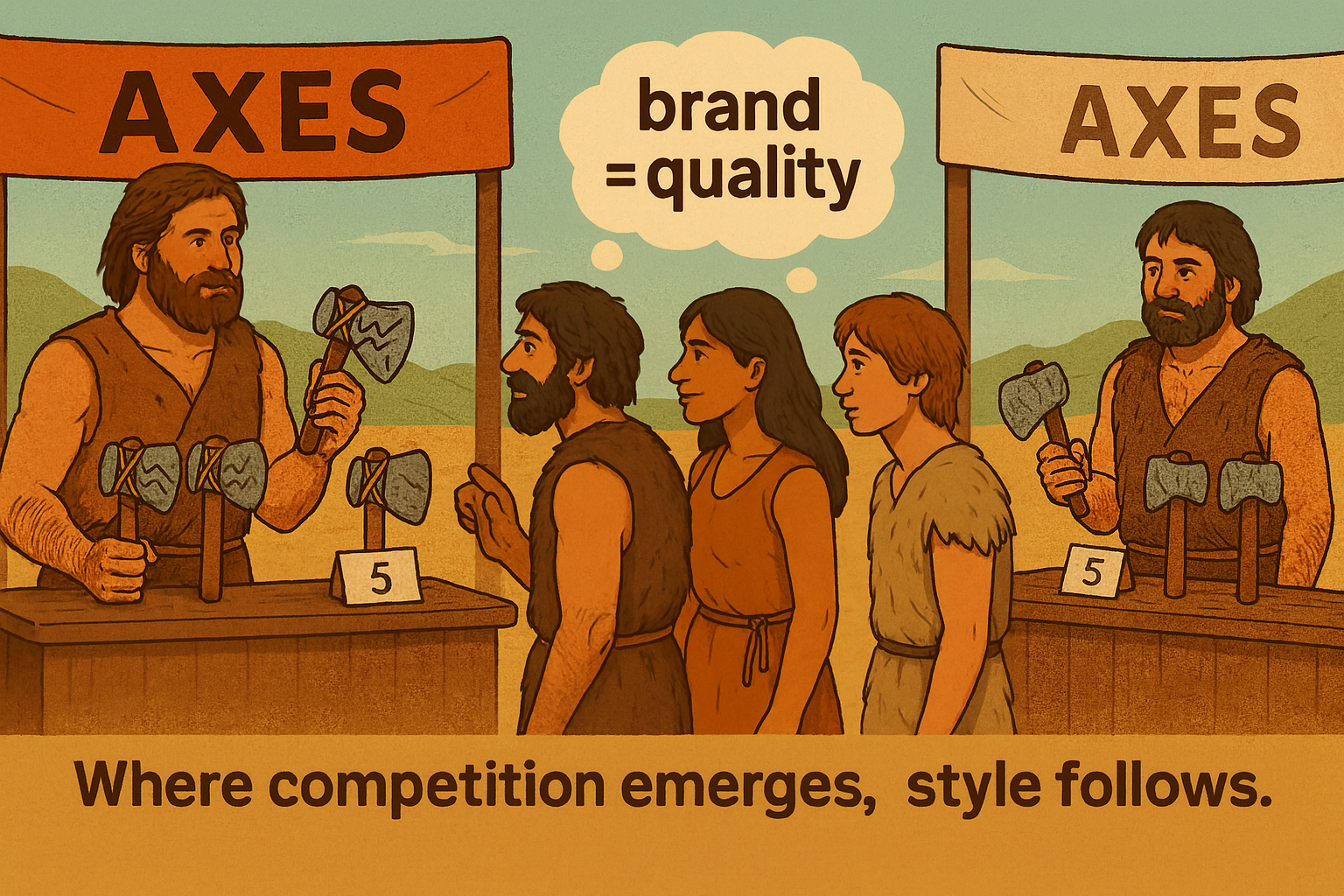
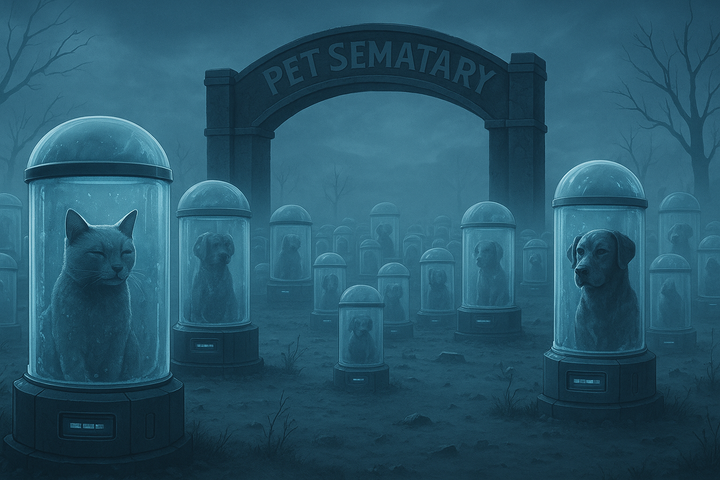
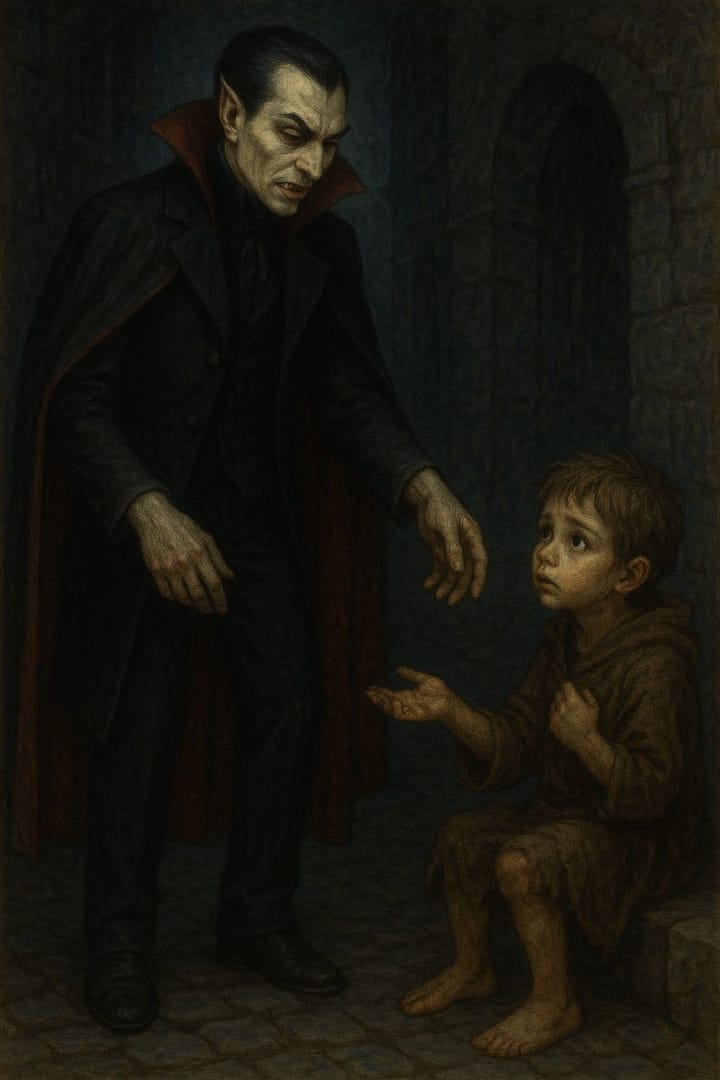
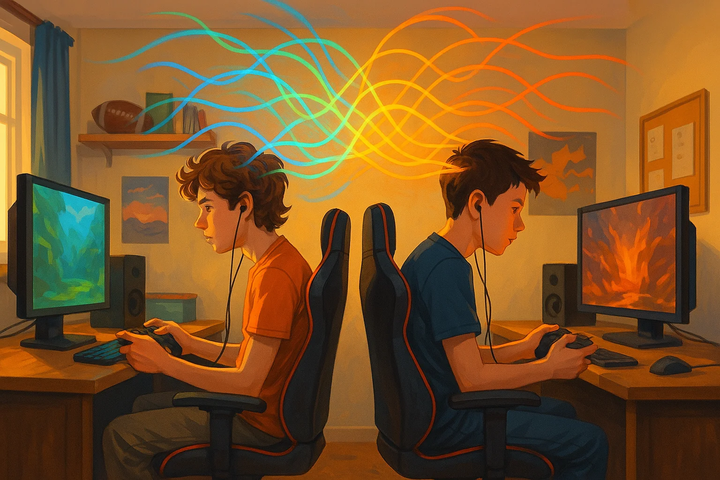
Comments ()